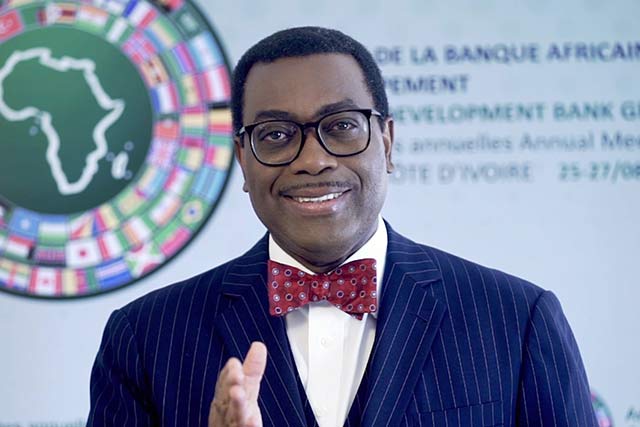In April 2022, the Premium Bread-Makers Association of Nigeria issued a warning that bread prices would increase by 50% in May due to wheat scarcity and true to the warning, the prices have gone up.
Also, in March, Egyptian Prime Minister, Moustafa Madbouly, ordered the price of commercially sold bread in the country to be frozen at 11.50 Egyptian pounds, per kg to counter rising food prices after Russia invaded Ukraine and closed off access to lower-priced Black Sea wheat.
Egypt is the world’s largest importer of wheat and has about 80 per cent of its wheat imports from Russia and Ukraine. These and more are the sad situations relating to food across the various countries in Africa today.
Without any iota of knowledge of the fate of the continent in 2022, at the start of the year, the African Union declared the theme for the year to be “Strengthening Resilience in Nutrition and Food Security on the African Continent”.
The initiative was expected to shine a spotlight on nutrition in Africa and push for greater political commitment and increased investment to address the existing food and malnutrition challenges on the continent
The initiative became imminent as many countries in Africa across the East, West, Central, and South such as Angola, Cameroon, Kenya, and Nigeria, were grappling with soaring food prices due to economic downturns, and extreme weather events like floods, droughts, and government policies.
However, with the impact of the Covid- 19 pandemic still lingering hard and the aftermath of the Russian invasion of Ukraine causing food insecurity, Africa seems to be the worst hit and is at the point of facing a severe food crisis if nothing is done urgently.
Now with a projection of more than 346 million Africans likely to face a food crisis this year, the continent is more likely to be attending to tackling food insecurity than malnutrition as the demographic of the malnourished has reduced.
At the moment, several aid and donations have been pouring in for the continent from international organizations and bodies to help address the rising food insecurity.
The question then is for how long Africa will continue to depend on aid and external supply chains for basic food production.
To answer this pertinent question and cross the line of dependency to the producer level, Africa must grow its agricultural sector and make it more effective.
The leaders on the continent need to rise to the challenge and leverage the problem as an opportunity to build a strong and resilient agric sector.
In 2013, the World Bank estimated that Africa’s food market could be worth 1 trillion dollars by 2030. This projection can only come to pass if and when African leaders commit to investing more in agriculture.
By increasing investment in the sector, farmers get adequate access to funding through loans which they use in improving their activities. And just as food prices are not the only things going up, the prices of the agricultural input needed to create food are also going up with fertiliser prices reaching record highs.
To address this and make sure the people get the required amount of food needed despite all the challenges, extra efforts must also be made for the availability of agricultural inputs such as fertiliser at a subsidized rate to help farmers increase yields.
To further increase funding to the sector, governments across countries need to embrace the Public-Private Financing for agriculture. This will require governments to provide conducive policies as well as a necessary institutional and legal environment for the private sector to thrive and contribute to their quota.
This is essential as governments alone cannot sustain funding to the sector but with the private sector, there will be various innovative financing solutions with risk assessments.
Leaders also need to embrace the use of emerging technologies in advancing agriculture. Doing this will help farmers increase productivity and encourage even more people, especially the youths into farming.
An instance of this is what is been done in Burkina Faso where technology is being used for micro-irrigation which involves using groundwater, solar pumping, and efficient irrigation technologies that limit evaporation as much as possible.
Since the adoption of the method, there have been productivity gains as Burkina Faso has gone from 20 pilot farms in 2019 to implement this method in nearly 500 farms with projections for increment.
There is also the use of drones deployed in Togo, which some rice growers use to map their fields, optimize their farming operations and improve the application of crop protection products.
These are just a few of how technology can be deployed for building a resilient farming model across the continent to increase productivity and engage more people in agricultural activities.
Technology can also be used for the end product storage to provide an increase in profitability, efficiency, and sustainability of farm produce.
While all of the above are being put into practice, it is also important to engage in farmer education to get them sensitized to various technological advancements which can be adopted to increase their yields. It is also needed to educate them on some of the harmful practices which put their produce to waste and lead to inadequacy like the use of chemicals and co.
Constant farmer education also gets them aware of the several initiatives by the private sector and government that they can tap into to improve their activities and grow more food.
Africa needs to grow what it eats and eat what it grows and it has gotten to that stage where the continent can not continue to depend on exports and foreign support to feed its population.
The popular saying that ” we do not live to eat but we eat to live”, is a proof that food is essential for the existence of man, as such leaders and all stakeholders on the African continent must come together and work as one to ensure that the continent not only gets to a level of food security but have mechanisms in place for sustainability such that no more will any African be worried about getting a daily meal.


